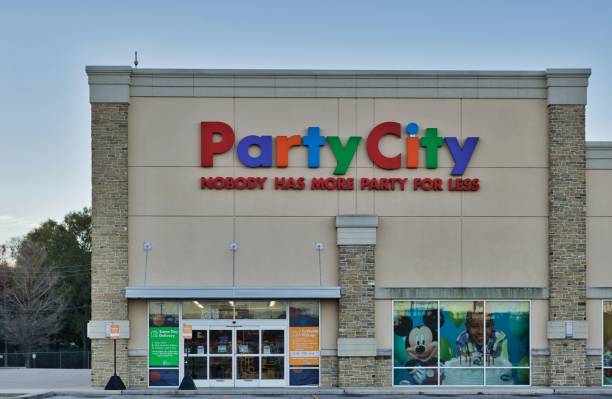After today, the party is over.
Party City revealed it will be closing down all of its stores across the US, ending a nearly 40-year run of being in business.
In a meeting that was viewed by CNN on Friday, CEO Barry Litwin told corporate employees the company will be “winding down” operations immediately and that today will be their final day of working. It was also reported that employees were told they will not receive severance pay, along with their benefits ending as Party City goes out of business.
“That is without question the most difficult message that I’ve ever had to deliver,” Litwin said at the meeting, which was held on a video conference call.
Party City’s “very best efforts have not been enough to overcome” its financial challenges, he added, resulting in the company’s collapse. Litwin reported that the company struggled to stay afloat due to inflation, which sent the company’s costs higher and dragged down consumer spending.
According to a former Party City corporate office employee, who spoke with CNN and wished to remain anonymous because they were not authorized to speak to the media, news of the company’s impending collapse had begun to circulate amongst the corporate staff over the past few weeks. They reported that Party City’s product development team was recalled two weeks ago from its yearly trip with vendors and told to return home immediately, with the company alleging that the trip posed a safety risk since it had stopped paying its suppliers.
All corporate workers were sent home on December 10, the former employee reported, and security at corporate headquarters locked the doors to the front entrance. In an email sent to staff on December 11, the company’s security team told employees they needed to provide a one-day heads up to gain access to the building, and they were instructed: “Do not allow anyone to tailgate when entering the building” to avoid letting people in the door who did not have badge access.
Just four months ago, the New Jersey-based company announced Litwin as its new CEO, who said the company’s “main priority is to strengthen our financial health, and there is work ahead of us,” in a LinkedIn post he wrote after he was hired.
A month after Litwin’s arrival, the company exited bankruptcy after declaring it in January 2023 due to a struggle to pay off its $1.7 billion debt, of which it was able to cancel $1 billion after filing for bankruptcy. Yet, the company still had $800 million of debt to overcome, which strained its earnings this past year.
Financial struggles have also been heightened by growing competition with e-commerce sites and pop-up stores like Spirit Halloween, along with big-box retailers such as Amazon, Walmart, Costco, and others. On top of competition, the company also faced rising costs during the Covid pandemic, and a helium shortage that damaged its ballon sales.
According to Coresight Research, major chains are on track to close the highest number of stores in 2024 than in any year since 2020. On Thursday, Big Lots announced it was starting “going out of business” sales at all of its locations after a plan for a private equity firm to sustain the bankruptcy retailer did not succeed.
Party City, which was founded in 1986, is the largest supply store in the country, and employed approximately 6,400 full-time and 10,100 part-time workers as of 2021.












